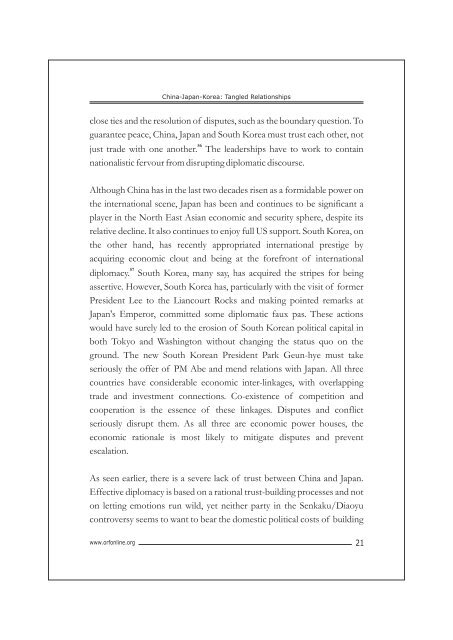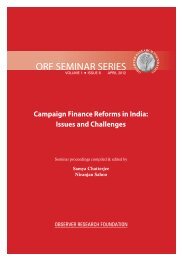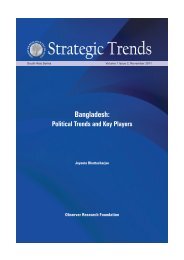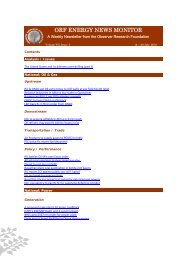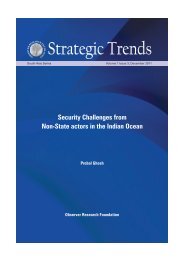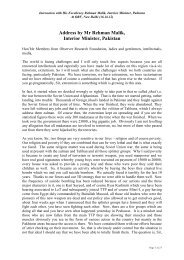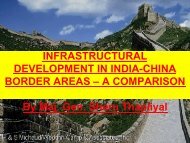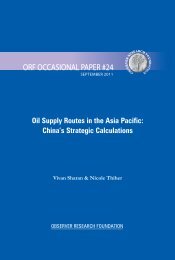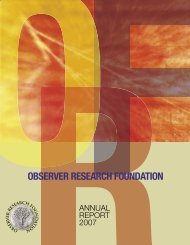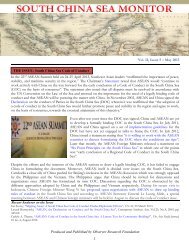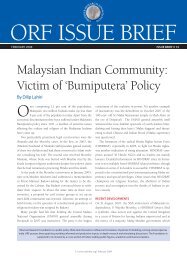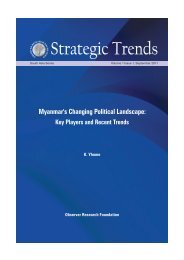Tangled Relationships - Observer Research Foundation
Tangled Relationships - Observer Research Foundation
Tangled Relationships - Observer Research Foundation
Create successful ePaper yourself
Turn your PDF publications into a flip-book with our unique Google optimized e-Paper software.
China-Japan-Korea: <strong>Tangled</strong> <strong>Relationships</strong><br />
close ties and the resolution of disputes, such as the boundary question. To<br />
guarantee peace, China, Japan and South Korea must trust each other, not<br />
56<br />
just trade with one another. The leaderships have to work to contain<br />
nationalistic fervour from disrupting diplomatic discourse.<br />
Although China has in the last two decades risen as a formidable power on<br />
the international scene, Japan has been and continues to be significant a<br />
player in the North East Asian economic and security sphere, despite its<br />
relative decline. It also continues to enjoy full US support. South Korea, on<br />
the other hand, has recently appropriated international prestige by<br />
acquiring economic clout and being at the forefront of international<br />
57<br />
diplomacy. South Korea, many say, has acquired the stripes for being<br />
assertive. However, South Korea has, particularly with the visit of former<br />
President Lee to the Liancourt Rocks and making pointed remarks at<br />
Japan's Emperor, committed some diplomatic faux pas. These actions<br />
would have surely led to the erosion of South Korean political capital in<br />
both Tokyo and Washington without changing the status quo on the<br />
ground. The new South Korean President Park Geun-hye must take<br />
seriously the offer of PM Abe and mend relations with Japan. All three<br />
countries have considerable economic inter-linkages, with overlapping<br />
trade and investment connections. Co-existence of competition and<br />
cooperation is the essence of these linkages. Disputes and conflict<br />
seriously disrupt them. As all three are economic power houses, the<br />
economic rationale is most likely to mitigate disputes and prevent<br />
escalation.<br />
As seen earlier, there is a severe lack of trust between China and Japan.<br />
Effective diplomacy is based on a rational trust-building processes and not<br />
on letting emotions run wild, yet neither party in the Senkaku/Diaoyu<br />
controversy seems to want to bear the domestic political costs of building<br />
www.orfonline.org 21


